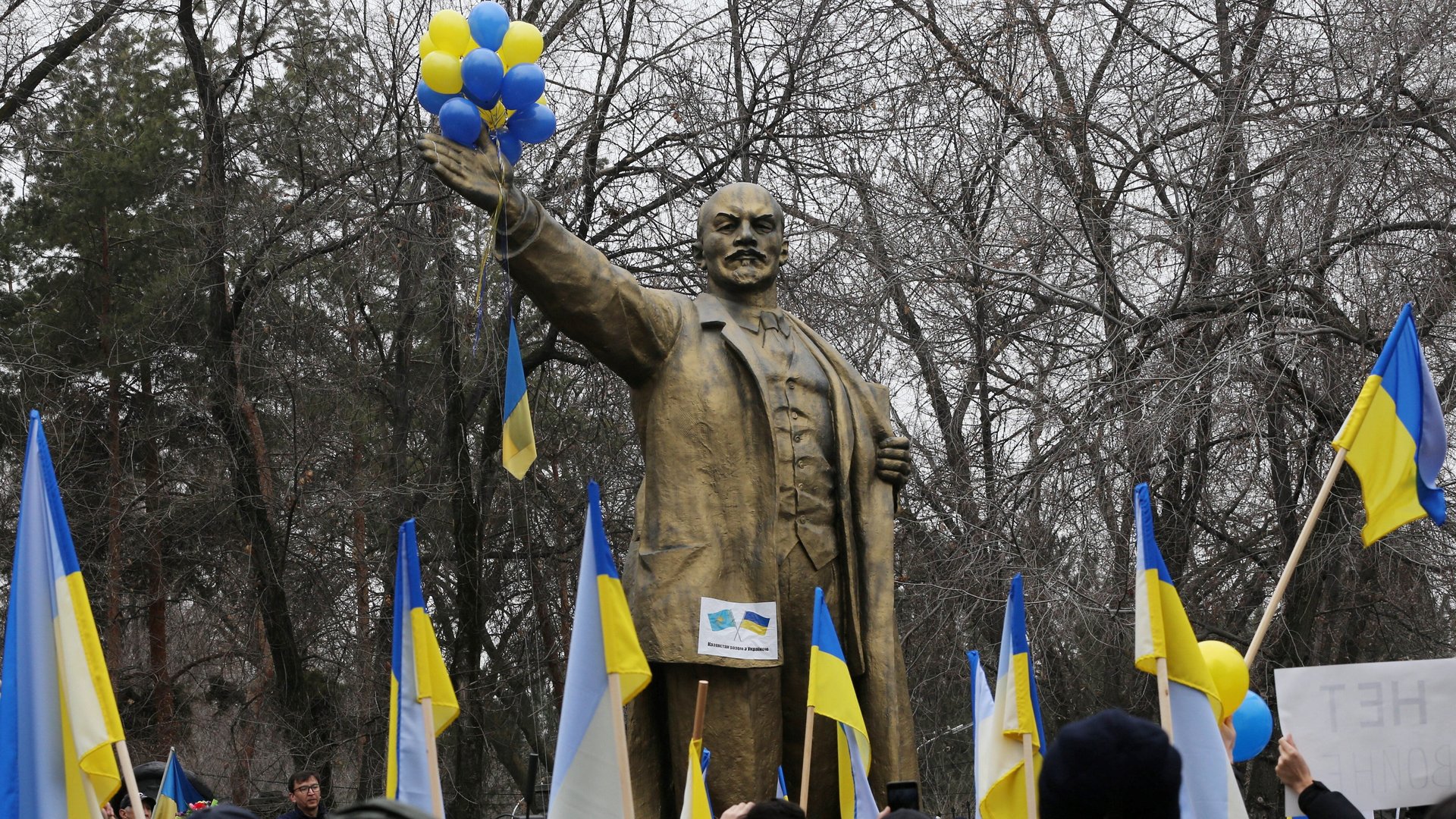The last time Russia defaulted on foreign debt, Lenin was in power
Russia has to pay out $117 million in interest payments on dollar-denominated bonds on March 16—except that sanctions may not allow it to make the payments in dollars, as required. The impending default will be Russia’s first on foreign debt since 1918, shortly after the Bolshevik Revolution.


Russia has to pay out $117 million in interest payments on dollar-denominated bonds on March 16—except that sanctions may not allow it to make the payments in dollars, as required. The impending default will be Russia’s first on foreign debt since 1918, shortly after the Bolshevik Revolution.
Ordinarily, Russia would have drawn on its foreign currency reserves to make this coupon payment, but most of its reserves have now been frozen. “If we see complications with executing the order then on Tuesday we will prepare a relevant transfer order in the ruble equivalent,” Anton Siluanov, Russia’s finance minister, said on state television on March 14. “Is that a default?…From Russia’s point of view, we are fulfilling our obligations.”
But the bonds that Russia is servicing do not permit payment in rubles. And although bond payments have a grace period of 30 days, agencies like S&P Global Ratings or banks and asset managers sitting on the Credit Derivatives Determinations Committee can deem a ruble payment to be an official default. And if the war continues and sanctions persist, it won’t be the first such default. Russia’s government and companies have about $150 billion in outstanding foreign debt, held by banks, endowments, and pension funds across the US, Europe, and Japan.
When Lenin triggered a foreign debt default
Shortly after that other Vladimir—Vladimir Lenin—came to power in 1917, Russia repudiated all its foreign debt, on the basis that it had been issued by the tsarist government, which the Bolsheviks had declared an unauthorized regime. At the time, thanks to World War I, Russian debt had ballooned. In the dollars of that era, the economist Adam Tooze wrote in his book “The Deluge,” Russia’s debts ran to “$4.92 billion piled up in the pre-war era, [and] $3.9 billion since the start of the war, the latter sum formally guaranteed by the British and French governments.” Roughly, $1 billion in 1914 is around $28 billion today.
The default set off shock waves. The British government complained that the Bolsheviks were undermining “the very foundations of international law.” France demanded that banks in London and Stockholm seize any Soviet gold that they held, to compensate bondholders. Around “1.5 million middle-class French investors…held 43% of all French capital in Russia,” the historian Nicholas Mulder wrote in his book “The Economic Weapon,” and the French government had to guarantee interest payments on Russian debt.
The new Soviet government, though, argued that it had serviced its obligations with “a sea of blood and mountains of corpses”—not currencies found in any standard bond term sheet. The debts were never repaid; instead, as might well happen with modern Russia’s foreign debt, they were subsumed by the sweep of geopolitics and war.